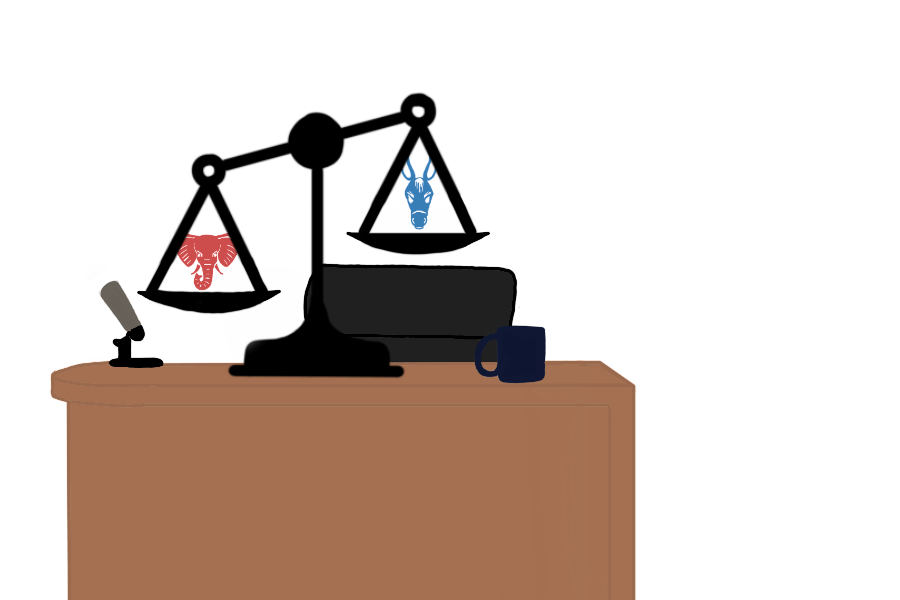Con: Late night TV should not be your first news source
In the last four years, late night TV shows have focused more on politics.The Sidekick daily news/assignment editor Avani Kashyap thinks late night television should not be consumers’ main source of daily news as its biased nature influences consumer’s opinions.
April 1, 2021
Whenever I hear about a political debacle in the news, my first thought is, “Wow, the late night hosts are going to have a field day with this.”
I’m usually right. At 11:59 p.m., after I’ve scrambled to turn in my last assignment for the day, I open up my iPad – because yes, as a culturally evolved Gen Z kid, I watch TV on YouTube – and take “A Closer Look” at what my favorite late night TV hosts have to say.
While I thoroughly enjoy my daily routine of listening to Seth Meyers’ comedic take, late night TV shows are not my first or primary source of news. Unfortunately, the same cannot be said for many other youth.
A study by the Pew Research center found that 61% of young people regularly or sometimes learn campaign information from comedy television.
While late night TV shows can help the younger generation become more interested in the news and politics by making information more entertaining and accessible, they are explicitly biased and may not be an accurate, holistic representation of current events.
“People like Stephen Colbert and Trevor Noah are bringing humor to news and that’s involving a lot of young people, especially people in high school, because it’s really funny to watch,” Coppell High School senior Keertana Narayanan said. “These personalities jump to whatever sensationalized news they see first because they want the engagement.”
Because late night shows gravitate towards the most comedic events, they may not focus on the most important information being discussed. Relying on other, more objective sources to understand the news also encourages citizens to form their own opinions through individual analysis.
“A lot of kids watch late night news shows that are not news but think that they are news,” CHS Principal Laura Springer said. “We should fact check everything. You have to really look at who is giving you the news. Is it a reliable source, and are they known for being honest and trustworthy?”
To KCBY-TV adviser Irma Kennedy, the current state of late night TV shows is doing more harm than good, and she thinks that the constant jokes could be increasing division within the country.
“Now on late night TV, it’s a lot of making fun of everybody,” Kennedy said. “It adds to the negative discourse that’s going on in our country. It’s changed a lot. There has to be a level of kindness and professionalism and we’ve crossed that line.”
The fact that news has taken on a much bigger role in comedy is indicative of a trend that shows politics is becoming more integral to our daily lives. Saying “I don’t do politics” is not as feasible when a large section of pop culture is eagerly engaging in political discourse.
Comedy can make the news much more digestible, and turning on the TV to listen to humorous takes on serious, dense matters can be a welcome relief at the end of a long day.
Just make sure your news consumption is varied and wise, so late night shows aren’t the first source you turn to.
Follow Avani @AvaniKashyap03 and @CHSCampusNews on Twitter.










